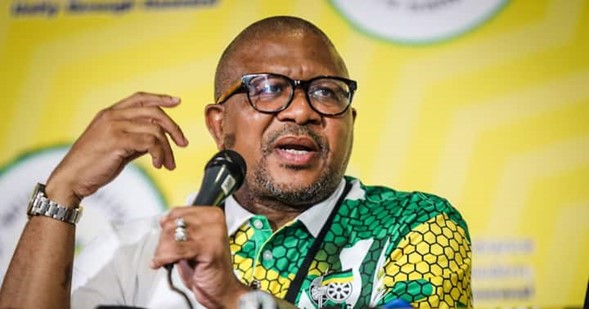THE TUMULTUOUS PROSPECT OF ANC-DA COALITION IN SOUTH AFRICA
The political landscape of South Africa could be facing an unprecedented shift as rumours of a possible coalition between the African National Congress (ANC) and the Democratic Alliance (DA) gather momentum. The mere consideration of such a union strikes a discordant note across the nation, given the stark ideological contrasts and historical animosities that have defined the two parties.
At the heart of the potential coalition lies a fundamental paradox. The ANC, with its liberation heritage and transformative agenda, and the DA, which often champions liberal policies and governance reforms, sit on almost diametric ends of the political spectrum. The ANC’s approach is deeply rooted in addressing historical injustices and advancing economic empowerment for the disadvantaged, often through state-led interventions. In contrast, the DA advocates for free-market principles, limited government intervention, and stringent governance reforms aimed at curbing corruption and enhancing efficiency.
This ideological divergence is mirrored in the contentious relationship between the party leaders, which has been marred by public spats and mutual recriminations. A notable flashpoint in these relations occurred last year, centring around Fikile Mbalula, the Secretary-General of the ANC. The DA has been vocally critical of Mbalula, particularly concerning issues of governance and legal accountability. In a dramatic escalation, the DA launched a series of legal challenges against Mbalula, culminating in a contempt of court application for his failure to produce records related to cadre deployment—a practice the DA contends perpetuates corruption and inefficiency within the government apparatus.
The DA’s actions are not merely legal moves but are deeply emblematic of the broader political and personal rifts that exist between the two parties. These incidents underscore a bitter rivalry, with the DA publicly challenging the integrity of ANC leaders and the ANC, in turn, accusing the DA of political opportunism and undermining transformative policies. Such confrontations are not easily forgotten and are indicative of the deep-seated animosity that could jeopardize any collaborative governance efforts.
The potential coalition, thus, raises the spectre of significant political upheaval. The integration of two fundamentally opposed entities could lead to the ousting of key political figures, which in turn might provoke widespread dissatisfaction among voters loyal to these leaders. The discord within the parties could extend to their respective voter bases, potentially destabilizing the political landscape even further.
Moreover, the practical implications of such a coalition are profound. The governance of South Africa could become mired in constant public disagreements and policy paralyses as each party attempts to assert its philosophy and protect its interests. This could lead to an escalation of public scandals, with each issue becoming a flashpoint for further conflict.
In conclusion, the rumoured coalition between the ANC and the DA could thrust South Africa into a period of significant internal strife and political instability. Such a scenario would be characterized by intense public scrutiny, ongoing legal battles, and a nostalgia for the periods of clearer party dominance. The potential for chaos is immense, suggesting that the path to coalition, if taken, would be fraught with challenges that could reshape South African politics in unforeseen ways. The unfolding of these events will undoubtedly be a critical juncture for the nation, testing the resilience and adaptability of its democratic institutions.
